10 Hot Tips to Slash Your Heating Bills and Save Energy
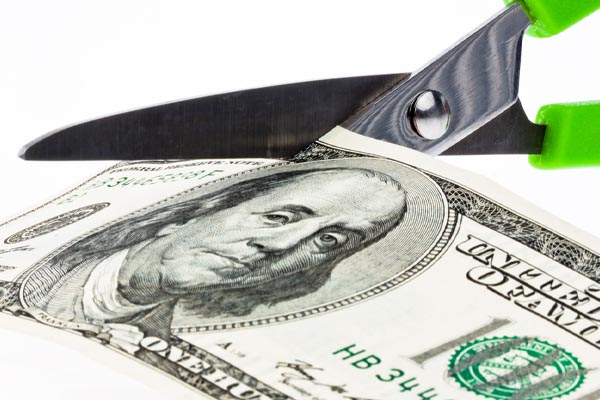
Home heating expenses have been steadily climbing, significantly impacting household budgets. Although this year’s oil prices show a slight decrease compared to last year, the general direction of escalating energy prices appears unchanging. For the typical homeowner, these costs represent a major portion of their yearly heating expenditure, often exceeding two-thirds of the total amount. However, there’s a silver lining: various strategies and energy-efficient heating tips are available to reduce these expenses substantially. This article explores ten practical energy saving heating tips that can assist homeowners in conserving energy and, consequently, lowering their heating bills.
Top 10 Energy Conservation Tips for Minimizing Heating Costs and Maximizing Efficiency
Contents
- 1 Top 10 Energy Conservation Tips for Minimizing Heating Costs and Maximizing Efficiency
- 1.1 Energy Savings Tip #1: Optimize Your Thermostat Settings
- 1.2 Energy Savings Tip #2: Regular Maintenance of Your Home Heating System
- 1.3 Energy Savings Tip #3: Optimize Your Water Heater Settings
- 1.4 Energy Savings Tip #4: Shop Around for the Best Heating Fuel Prices
- 1.5 Energy Savings Tip #5: Evaluate and Upgrade Your Insulation
- 1.6 Energy Savings Tip #6: Monitor and Seal Drafts & Leaks
- 1.7 Energy Savings Tip #7: Inspect Your Fireplace Damper
- 1.8 Energy Savings Tip #8: Optimize the Use of Blinds and Curtains
- 1.9 Energy Savings Tip #9: Change Your Furnace’s Air Filter Regularly
- 1.10 Energy Savings Tip #10: Schedule a Home Energy Audit
- 2 Call McAllister Energy For All Your Home Heating Needs
Below, we delve into ten effective energy conservation strategies that homeowners can implement to diminish their heating expenses and enhance energy efficiency.
Energy Savings Tip #1: Optimize Your Thermostat Settings
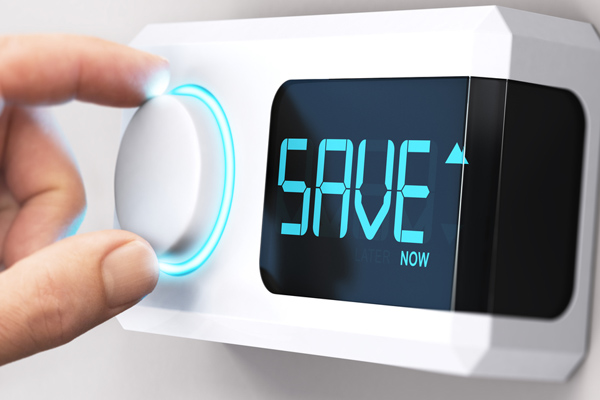
The significance of thermostat management in energy and cost savings is often overlooked. By adjusting your thermostat settings, even by just a few degrees, substantial savings on heating costs can be achieved. For every degree the thermostat is lowered, homeowners can see a 2% to 5% reduction in heating costs. Simple actions like wearing an extra layer at home and lowering the thermostat when leaving for work can lead to notable savings.
Similarly, reducing the thermostat setting at bedtime, when homeowners are under blankets for hours, can accumulate significant energy and cost savings over time.
Investing in a modern programmable digital thermostat, which starts at around $75, can further simplify temperature control. These thermostats automate temperature adjustments to align with your daily routine, offering an efficient way to manage heating with minimal effort. The initial cost of these thermostats is quickly offset by the energy savings they provide, making them a smart investment for homeowners looking to reduce their energy consumption.
Energy Savings Tip #2: Regular Maintenance of Your Home Heating System
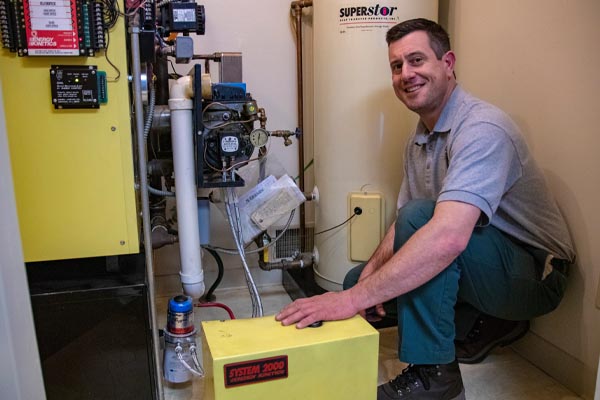
Regular maintenance of your home heating system is essential for energy saving and cost efficiency, much like a car requires routine checks for optimal performance.
A well-maintained heating system operates more efficiently, leading to substantial energy savings and lower heating bills, by ensuring all parts, from filters to thermostats, work properly.
Annual tune-ups of the heating system significantly extend its lifespan by addressing minor issues early, which prevents costly repairs and reduces the risk of unexpected breakdowns, thereby ensuring consistent comfort.
Regular maintenance of your heating system also promotes uniform and comfortable heat distribution in your home, proving to be a cost-effective method for reducing energy consumption and ensuring a warm living environment.
Energy Savings Tip #3: Optimize Your Water Heater Settings
Adjusting the thermostat on your water heater to approximately 115 to 125 degrees can result in energy savings of about 5% to 10%, typically without any noticeable difference in household usage. Small behavioral changes might be necessary, like avoiding the simultaneous use of hot water and running the washing machine.
Also, contemplate the benefits of tankless water heaters, which heat water as needed, although they come with a higher upfront cost. Insulating exposed hot water pipes, particularly in areas without insulation, using sleeves or similar products can further enhance energy savings.
Energy Savings Tip #4: Shop Around for the Best Heating Fuel Prices
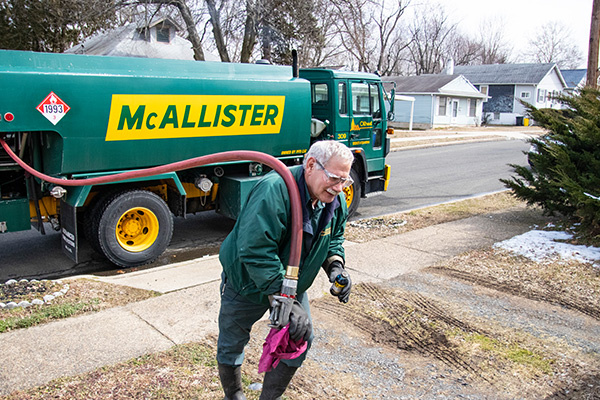
Using online price comparison platforms is an effective strategy for finding affordable heating fuel. These sites allow easy comparison of prices, helping you save on heating fuel purchases. It’s important to choose a supplier known for high-quality home heating oil.
The quality of home heating oil is crucial for the efficiency and reliability of your heating system. High-quality oil burns cleaner, enhancing system efficiency and being environmentally friendly. It ensures better performance, reduces the risk of breakdowns and maintenance, and lowers pollutant emissions. Additionally, premium oil can prolong your heating unit’s lifespan by reducing wear on key components.
When selecting heating oil, consider the grade of the oil. Premium oils often contain additives that boost fuel efficiency and prevent sludge formation, which can block lines and filters. These additives are especially useful in cold weather to prevent gelling, a common issue in low temperatures. Choosing high-quality heating oil is a wise decision for maintaining a comfortable home, extending the life of your heating system, and minimizing its environmental footprint.
Energy Savings Tip #5: Evaluate and Upgrade Your Insulation
Inspecting your home’s insulation is vital, especially if it’s aging or inefficient, a common issue in older homes. Nowadays, there are innovative insulation options, such as those made from cellulose, which are eco-friendly and more energy-efficient.
Utilizing such green products is an effective strategy for reducing energy costs. In some cases, simply adding a few inches of new insulation, rather than a complete overhaul, can be achieved in just a few hours. Additionally, energy-improvement tax credits might partially recoup the investment in upgrading insulation.
Energy Savings Tip #6: Monitor and Seal Drafts & Leaks
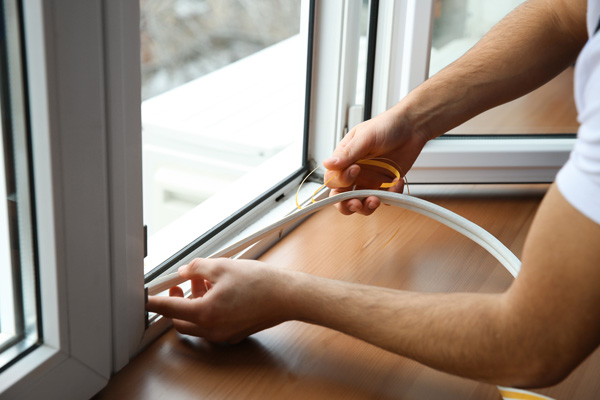
Identifying and sealing drafts in doors, windows, and fireplaces is key to increasing energy savings and heating efficiency. By sealing these leaks, you improve indoor comfort and cut down on heating costs. Using shrink wrap on windows and fitting door sweeps are effective methods to enhance insulation and prevent heat loss.
For fireplaces and other openings, applying spray foam to fill gaps prevents warm air from escaping and cold air from entering, helping maintain a stable indoor temperature. This cost-effective strategy can notably reduce heating expenses and boost your home’s energy efficiency in the winter months.
Energy Savings Tip #7: Inspect Your Fireplace Damper
Ensure your fireplace damper is closed correctly. An open damper can be a significant source of heat loss, allowing warm air to escape and cold air to enter your home. This is a commonly overlooked issue, as an open damper isn’t immediately visible, yet it can lead to continuous and substantial heat wastage.
Energy Savings Tip #8: Optimize the Use of Blinds and Curtains
Utilize your blinds and curtains to maximize solar heating during the day. Leaving them open allows natural sunlight to warm your home. However, remember to close them at night to retain the heat. This simple practice of opening during the day and closing at night can significantly aid in maintaining warmth inside your home.
Energy Savings Tip #9: Change Your Furnace’s Air Filter Regularly
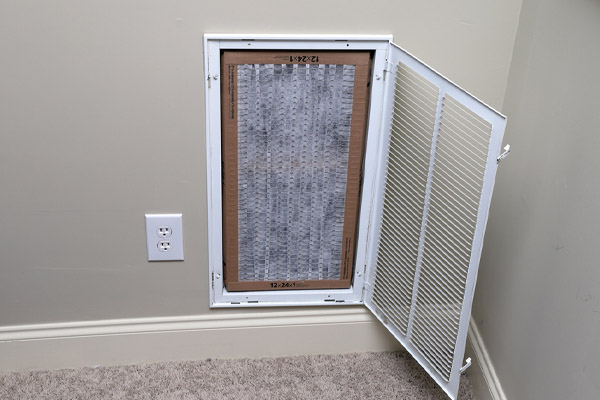
Consistently replacing the air filter in your furnace is an easy yet effective method to maintain its efficiency. Often overlooked, this simple maintenance step is vital to ensuring your furnace and blower operate at their best. Air filters, usually priced between $5 and $10, offer a small investment for notable returns.
Frequent filter changes boost your heating system’s performance and improve the air quality inside your home. This cost-efficient practice significantly contributes to your energy savings and extends the life of your heating system.
Energy Savings Tip #10: Schedule a Home Energy Audit
Consider having a home energy audit, which some states offer free of charge to homeowners. These audits cover the tips mentioned in this article and additional ones not discussed. Following an energy audit, homeowners often have access to discounts and incentives for making energy-efficient improvements.
Call McAllister Energy For All Your Home Heating Needs
For all your HVAC and oil delivery needs, contact McAllister Energy. We have some of the most highly qualified and professionally certified technicians in Southern New Jersey. Each of our friendly techs can conduct all kinds of HVAC services, such as oil tank upgrades, boiler repair, ductless installations, furnace replacements, and more. We have various oil delivery plans and financing options. This way, you can customize your fuel deliveries to meet your needs. Our heating oil delivery and HVAC services are affordable and are done accurately and promptly at all times.
All of our services come with a guarantee. Our HVAC maintenance services improve your energy efficiency and home comfort while decreasing your HVAC costs. We can also assist you when you need to replace your heating and cooling system. We will help you find the best make and model for your home without sacrificing your budget. Our experts have the skills, training, and experience to ensure that all your home comfort needs are met. Book an appointment with us today. Call McAllister Energy for a free, in-home estimate.
You can click here to contact us now or call us at (856) 665-4545 to find out more! Click the link to view our service area.

Related Articles: